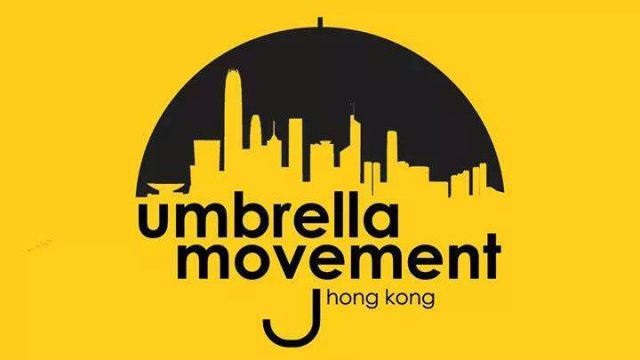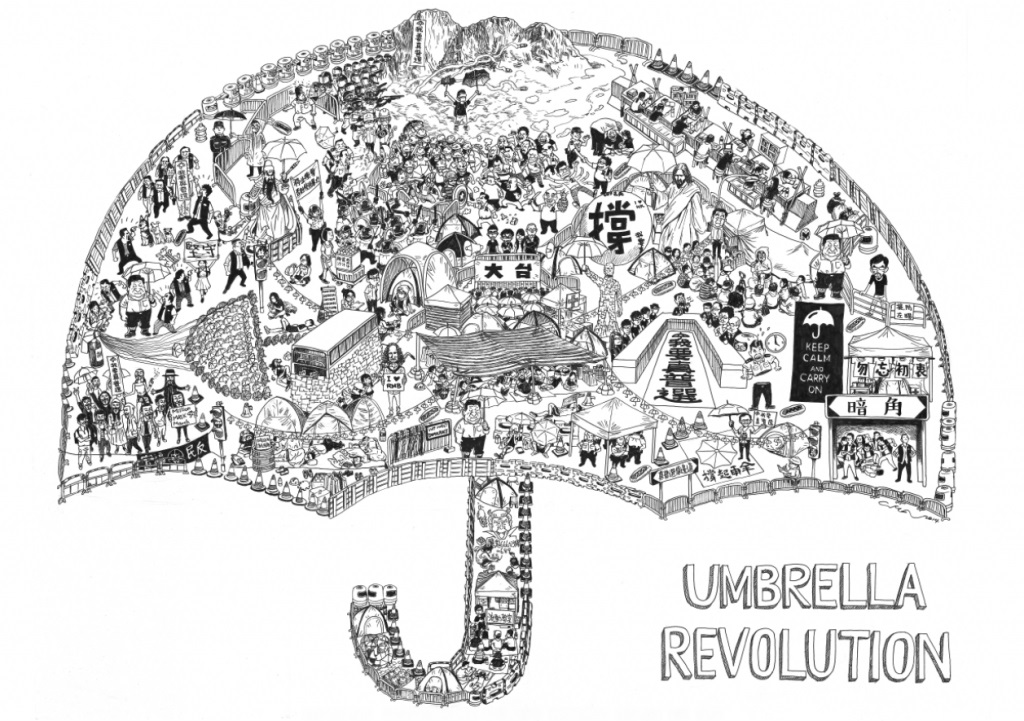
Hong Kong People Steadfastly Participated In Occupy Movement
for Genuine Universal Suffrage
Zhen Yan

Occupy Movements in Admiralty, Causeway Bay, Mongkok, and Tsim Sha Tsui in Hong Kong, fighting for genuine universal suffrage, had lasted for 79 days. They were cleared by the Hong Kong government, under the order of the Beijing government.
The result of the Communication and Survey Center of Chinese University of Hong Kong showed that about 20% of interviewees had joined the Occupy Movement. It estimated that around 1.2 million Hong Kong people, or one-sixth of the whole population, had participated the Movement.
The Movement is very unique in the history of Hong Kong and even China. Its main goal is innovative and epochal, particularly after 1997. It originated from three intellectuals proposing to occupy the Central to fight for genuine universal suffrage. Afterwards, university students and teachers from more than 10 tertiary institutions took the leadership. A lot of secondary school students, young people, and citizens echoed and supported. Once there were hundreds of thousands of occupants on Admiralty Square. The Movement clearly showed the occupants’ awakening of democracy and strong will of fighting for genuine universal suffrage. It was with peace, rationality, resilience, militancy, and in particular, with innovation when occupying the roads. The occupants were holding umbrellas not only to confront the tear gas of police, but also to resist the burning sun and heavy rains. So it was called Umbrella Movement.
The occupants demanded a genuine universal suffrage in electing the Chief Executive, so they demanded the cancellation of the August-31 Resolution by the Standing Committee of the National People’s Congress of PRC, dictating Hong Kong’s 2017 elections for the Chief Executive, requiring over 50% endorsement of candidacy by the 1200-member Nominating Committee. However, the majority of the Nomination committee members are pro-establishment and conservative. It is extremely difficult for the pan-democracy parties to get over 50% endorsement of candidacy by the Committee. If the Committee recommends 2 to 3 candidates, Hong Kong’s eligible voters can only choose one of them. They cannot nominate any preferred candidate. It is a fake and absolutely not genuine universal suffrage. This rule of game completely declines the popular demand of taking civil nomination, defeating the monopoly of nomination by the Committee, as well as other proposals such as one-eighth or one-fourth of endorsement of candidacy by the Committee.
Lots of students and citizens were very dissatisfied with the fake universal suffrage. They joined in the Occupy Movement to fight for genuine universal suffrage. More and more people joined sit-ins. There were many reasons of discontents, for example, the inappropriate government policy of defending the interests of corporates and developers. This led to an escalating property price and housing problem. There was an enlarging gap between the rich and the poor. Social conflicts were aggravated. Disgruntles were widespread. At the beginning of the Movement, the police violently suppressed the Movement. They used 87 pieces of tear gas and beat the occupants’ heads and necks which obviously violated police internal regulations. Many occupants were bleeding seriously and were sent to hospital.
The authorities made mistakes which aroused people’s anger, who joined the Movement, and provided material support. Many individuals and organizations made declaration on the newspapers to support the Movement and reprimanded police violent repression. Chinese of Taiwan and other countries echoed and supported. Local media made series of coverage and reports. In mainland China, over 100 people openly declared to support the Movement. They were detained for a long time and many are not yet released.
Although the August-31 Resolution has not yet been cancelled and the proposal of civil nomination has not been adopted yet, the Movement has already shown the occupants’ courage and strong will of fighting for universal suffrage. The demand is getting more popular which may force the authorities to make some changes or reforms when they formulate the details of election. Nevertheless, the discontents of Hong Kong people have increased. The fire of resistance will not stop. There will be different kinds of resistances. If the future formulation of universal suffrage is not satisfied, there will be more serious resistances.
The seventy-nine-day resistance is just the first wave of movement. There will be continuous actions. It is necessary to make understandings and alliances among fighters and the ordinary people. It is also necessary to promote the importance of democracy at the grassroots level, which paves the way for the next phase of resistance.
Over the past two months, mainland people can see the scenes of Hong Kong Occupy Movement on TV and other media. Quite a number of them deliberately come to Hong Kong (such as Wang Dengyao, picket of June-fourth Democratic Movement), joined the Movement or observed the situation. The Movement directly challenges the authority of National People’s Congress and challenges the reputation of CPC. It also affects the future democratic movement. It enhances people’s experiences of resistance to the ruling class. Its influence is definitely far-reaching!
25 Dec 2014
